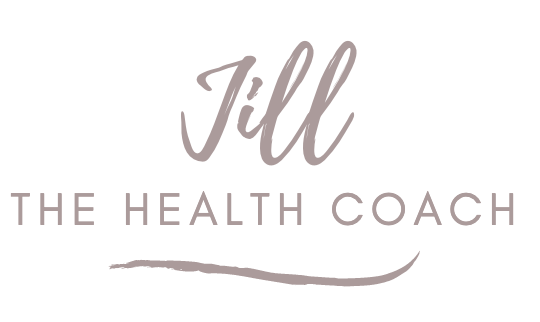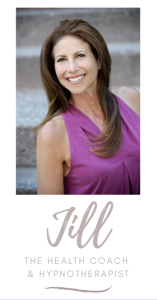There are two types of food that can lead and contribute to food addiction.
Of course, food addiction has many facets. In my previous article, I shared my journey of food addiction and how I struggled my whole life.
Some people experience that uncontrollable urge to keep eating way beyond the point of where they should feel full, like me.
Then, there are those, like my husband, who can eat just 1 teaspoon of Haagen Dazs vanilla bean ice cream and put the rest of the quart back in the freezer.
Food addiction is real and for those of us afflicted with it, our brains work differently.
The good news is that we can actually alter our brain chemistry to curb those cravings and feelings.
The two foods that contribute most to food addiction are the same as heroin or crack to a drug addict. Exactly the same to the brain. And they even look alike.
These two big food offenders are… sugar and flour.
But how can these foods that people eat every day affect us in the same way as those drugs?
Well, alone and unprocessed, these foods are harmless. They are plants.
However, when they are processed and ground down into fine powders, they are very concentrated, just like heroin and cocaine.
And they both make us feel sooooo good.
We get that sugar-rush and flour power on dopamine and leptin.
Picture this: you take a bite of that decadent chocolate cake, and suddenly, your brain’s reward center lights up like fireworks. That’s dopamine, the pleasure and reward neurotransmitter, doing its thing. But here’s the catch: both sugar and flour can hijack this system, leading to cravings and a never-ending desire for more. That’s why us food addicts can’t stop at just one bite.
Now, let’s meet leptin, the hormone responsible for keeping our appetite in check. But when we consume loads of sugar and refined flour, our bodies can become resistant to leptin’s signals. It’s like having a stubborn door that doesn’t open when it’s supposed to. As a result, we keep feeling hungry, unsatisfied, and trapped in a cycle of seeking more food.
And there’s scientific backup to support this. In a study published in the journal Obesity (2014), researchers found that a low-sugar and low-refined-carbohydrate diet worked like magic to release weight and improve metabolic health in obese individuals. By eliminating sugar and refined carbs from their lives, participants saw improvements in weight, body composition, insulin sensitivity, and blood lipid levels.
In another study, published in the American Journal of Clinical Nutrition (2017), it revealed that a low-glycemic-index (GI) diet, led to greater feelings of fullness, reduced hunger, and less food intake. It’s like finding the secret formula to keep those cravings at bay.
More specifically, Dr. Susan Pierce Thompson also published a study in Current Developments in Nutrition (2020) that tracked 1,208 people who stopped eating sugar and flour for just two months. The data showed their hunger and cravings went steadily down over those two months-to little or no hunger or cravings AND released tremendous amounts of weight.
As you can see, abstaining from sugar and flour can be a powerful approach in overcoming food addiction (AND in releasing weight!), particularly for women in their 40s and above. Yes, complete and total abstinence is the real solution to get the food freedom that food addicts (and those who struggle with weight) really crave.
After all, you wouldn’t expect an alcoholic or cocaine addict to have alcohol or coke once in a while. Food addiction to these foods is the same thing.
Scientific studies suggest that eliminating these trigger foods can lead to improvements in not just weight, but also in metabolic health, satiety, and overall well-being. As well as releasing those cravings. Aaaahhhhhhh.
Recovery and staying abstinent from these trigger foods is a unique journey, and seeking support is crucial for personalized guidance. By embracing the power of abstinence and adopting healthier habits, individuals can break free from food addiction and reclaim control over their lives.
There even is a 12-Step Program for recovery, Food Addicts Anonymous. Just like Alcoholics Anonymous. Yup, because these foods are the same to some of our brains as addictive alcohol and drugs.
The program consists of:
- Identifying Trigger Foods: Recognize which foods, such as those containing sugar and refined flour, trigger addictive eating patterns and cravings.
- Establishing Abstinence: Make a commitment to abstain from trigger foods completely to break the cycle of addiction and regain control overeating habits.
- Seeking Support: Connect with healthcare professionals, therapists, or support groups specializing in food addiction to receive guidance, encouragement, and a sense of community.
- Finding Healthy Alternatives: Explore nutritious and satisfying alternatives to trigger foods, such as fresh fruits, whole grains, and natural sweeteners.
- Practicing Self-Care: Develop strategies for managing stress, emotions, and triggers that don’t involve turning to food for comfort. This can include activities like exercise, meditation, or engaging in hobbies.
Have fun exploring tasty alternatives (yes—there are many!), and find joy in your newfound freedom. Yes, freedom. NOT deprivation. Because these foods are what has caused life-long struggles. And the structure of black and white, non-negotiable food options is what gives you the ultimate freedom.
If you think you are a food addict, I’m happy to chat with you so you know you’re not alone. Feel free to hit reply.
Xo,
Jill
P.S. For healthy food ideas, please check the foods I eat to keep me at my optimal weight and full of energy by checking out my free shopping list.
“It is our choices that show what we truly are far more than our abilities.”
Live well and love more,
Jill Gordon
CHHC, MHt, MNLP, MTT, MSC, CLC
Certified Holistic Health Counselor, Master Certified Clinical Hypnotist*, Master Practitioner of Neuro Linguistic Programming*, Master Certified Life and Success Coach*
*Board Certified with IBCP (International Board of Coaches and Practitioners)
All material in this newsletter is provided for information only and may not be construed as medical advice or instruction. No action or inaction should be taken based solely on the contents of this publication;instead readers should consult appropriate health professionals on any matter relating to their health and well-being. The information provided has not been approved the Food & Drug Administration and is not intended to diagnose, treat, cure, or prevent any illness or disease.


